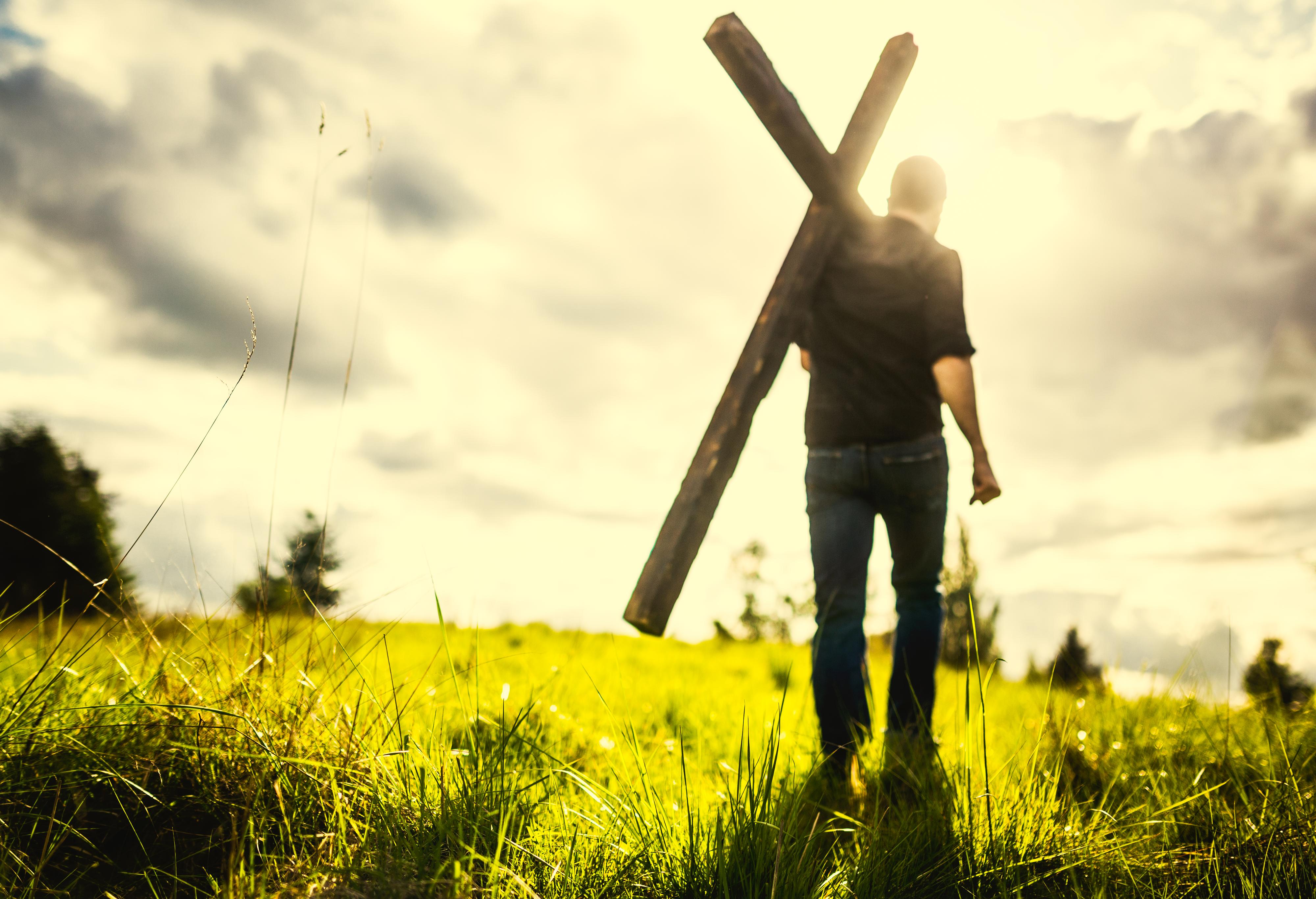Study Passage: Luke 14:25-35
In Luke 14, the requirements Jesus lays out for following him are stark—all or nothing. Jesus demands everything from his followers. He has this right for two reasons: everything was made by him, through him and for him (see Colossians 1:16); and by submitting himself to even death on a cross (see Philippians 2:8) he gave everything for his followers. When Jesus tells his disciples: “And whoever does not carry their cross and follow me cannot be my disciple” (Luke 14:27), he is simply calling them to follow him in a life of self-sacrifice.
Questions
- What are the things in your life that you can’t do without?
- What could you do without, but would rather not?
- What was the most difficult thing in your life that you have had to sacrifice and how did you feel about it?
Such radical talk can make us feel uncomfortable. In part, this is because there is hesitancy in the modern world, and in the church today, to talk about sacrifice. People want to hear about what they will gain, not what they might have to forsake. If they perceive the cost of discipleship is too high, they will seek a feel-good “gospel” elsewhere.
Questions
- Are there things in your life that you would find it harder to sacrifice than others?
- How would you feel if Jesus asked you to give them up for the sake of the kingdom of God?
Even for those who are willing to talk about sacrifice, Jesus’ message in this passage may appear extreme. We don’t normally associate Jesus with hatred, yet here he says: “If anyone comes to me and does not hate father and mother, wife and children, brothers and sisters—yes, even their own life—such a person cannot be my disciple” (Luke 14:26). This is a relative term. It is not meant to stand on its own, but to be understood in the light of the teaching around it. In this case, maybe echoing his parable about the pearl of great price, Jesus is emphasizing the cost of discipleship as the willingness to sacrifice absolutely everything—even our nearest and dearest relationships—to follow him.
Jesus wants to set us free from the things that entangle and enslave us, so that we can follow him without hindrance.
We may look down on the rich young ruler for being unwilling to sacrifice his great wealth for the sake of Jesus, but do we have “treasures” that prevent us from following? Neither family life nor material wealth is inherently bad, but anything that prevents us from following Jesus must be let go of. Jesus isn’t being mean or callous—he is being truthful. Discipleship means handing every aspect of our lives over to him.
Questions
- Is there anything in this passage that makes you uncomfortable? Why?
- What does it mean when Jesus says his followers must “hate” parents, children, siblings, spouse and self, and why is this a requirement?
When Jesus tells his disciples that they must “carry their cross,” he is not talking metaphorically. There is a tendency to spiritualize this teaching. Perhaps that’s because crucifixions are not part of modern life. For the disciples, seeing crosses on the side of the road would have been a daily reality. The cross meant only one thing—a horrible, painful, humiliating death. Jesus is saying: If you can’t follow me to the cross, to death, then you can’t follow me.
Although the cross today is more fashion accessory than execution instrument, Christ’s message is the same—we are called to live and to die for him.
Questions
- What would Jesus’ first followers have understood when he told them they must “carry their cross” (Luke 14:27) and what does that mean for us today?
- How does one “count the cost” of discipleship?
- Have you counted the cost of what it means to take up your cross and follow Jesus? If so, what conclusion did you come to?
This is not the typical evangelistic pitch. Western preaching typically focuses on God’s promises and provisions, yet we are doing the gospel a disservice by neglecting to mention the cost of following Jesus.
Jesus wants to set us free from the things that entangle and enslave us, so that we can follow him without hindrance. The rewards are great. Salvation is free and full to all. It would, though, be a delusion to think that true discipleship comes without personal cost.
Questions
- Is this requirement to give up everything for Jesus usually described to people before they become followers of Jesus? Was it described that way to you? Why or why not?
- Why do we need to let go of things in order to follow Jesus?
- What are some immediate practical consequences of this teaching for your life?
Aaron White is the ministry director of 614 at Anchor of Hope Corps in Vancouver.
Reprinted from Salvationist UK.
Feature photo: © RyanJLane/iStock.com










Leave a Comment